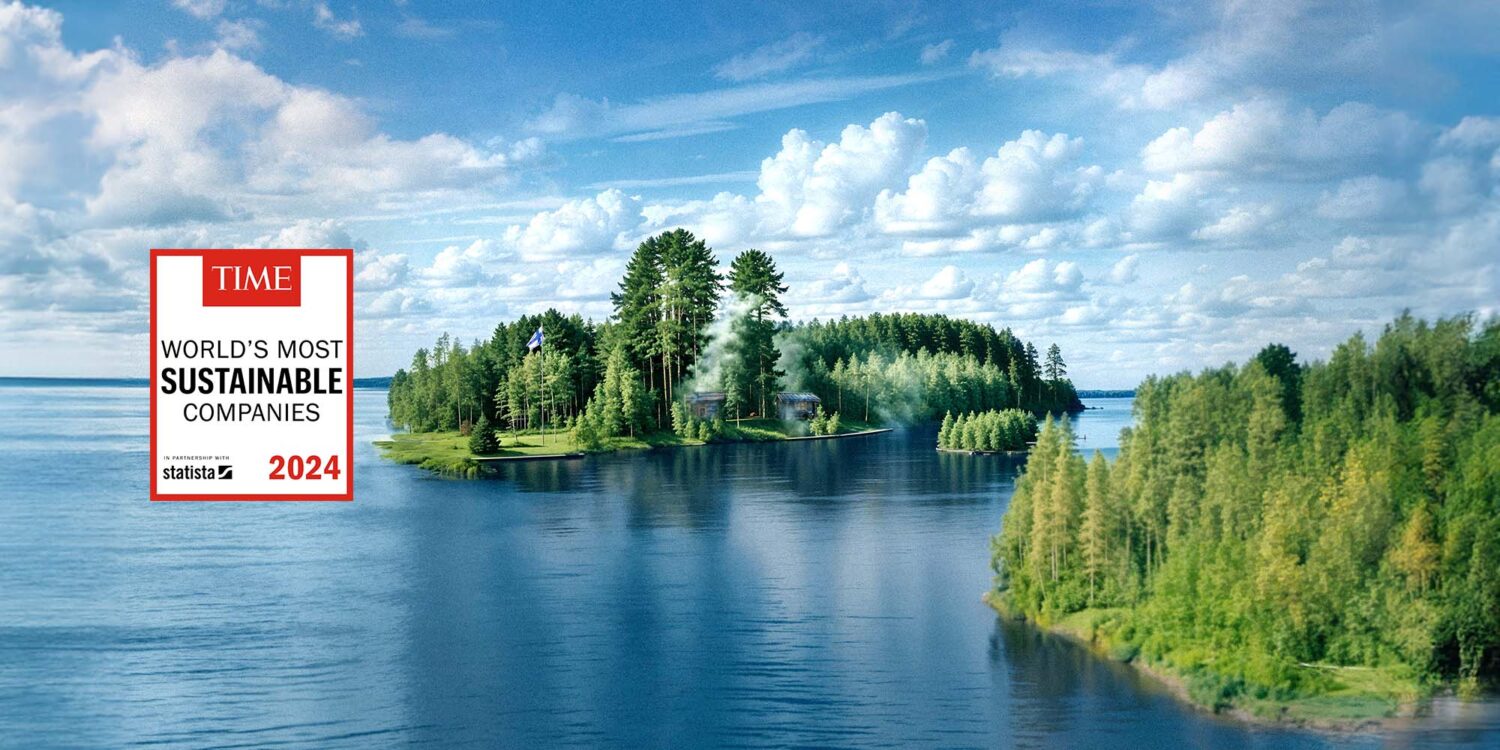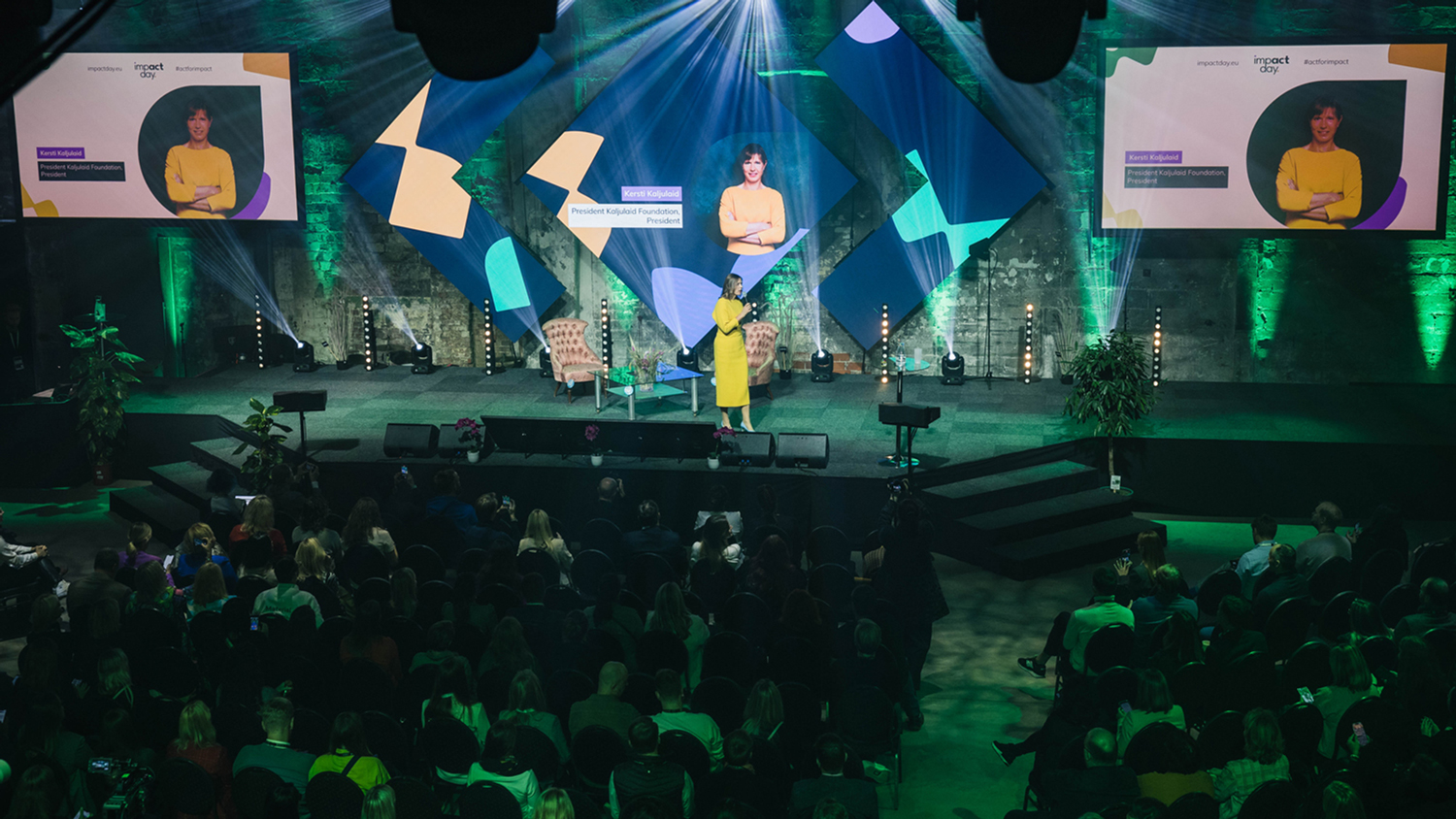Elisa, a telecommunications operator with core markets in Finland and Estonia, has been globally pioneering in sustainability for more than 15 years. With a mission to enable a sustainable future through digitalisation, Elisa is committed to the UN Global Compact, promoting a secure digital environment, equality and ethical business, and mitigating climate change. Elisa is also the co-organizer of Impact Day 2024.
“We promote sustainable development in society by developing sustainable digital solutions and reducing the negative impacts of our own operations for example by improving our mobile network electricity consumption and by safeguarding people’s privacy. The most important thing is that sustainability is genuinely at the heart of our strategy and an essential part of our mission,” says Minna Kröger, Vice President of Corporate Responsibility at Elisa.
“For us, sustainability is above all about taking actions having positive impact on sustainable development. We do this in collaboration with our customers and partners, with the support of all Elisa employees, in more than 20 countries,” Kröger continues.
Elisa has set ambitious sustainability targets for the availability of fast connections, cyber security, increasing Elisa’s carbon handprint and the energy efficiency of the mobile network, innovation, and promoting equality.
Transparent reporting helps stakeholders assess the progress of Elisa’s sustainability measures. For 11 years now, Elisa has been publishing an independently verified sustainability report, and the company reports on the progress of the targets in its interim reports.
Elisa’s long-term sustainability work is also reflected in international assessments. Elisa is now world’s 66th most sustainable company on the Time Magazine and Statista World’s Most Sustainable Companies ranking. Earlier this year, Elisa ranked among the 100 most sustainable companies in the world also on the Corporate Knights Global 100 list.
Innovative Approach to Combatting Climate Change Resulted in Using Mobile Network Base Stations as a Virtual Power Plant
Elisa has been engaged in visionary work to combat climate change and has been determinedly increasing its carbon handprint for a long time now. The actions Elisa takes in its operating environment have positive impacts on society as a whole.
“As a significant consumer of electricity, we set a challenge for us asking: what would happen if the upcoming transition from fossil energy to wind and solar power began to result in repeated power outages, significantly disrupting daily life? On days with no wind or sun, the contents of your fridge would spoil, and mobile phones would black out as mobile networks collapsed. How would society be able to secure its energy supply? We found the answer in science,” Minna Kröger describes.
Elisa uses a very large number of batteries in the base stations that support its mobile networks. The company’s most recent climate action is specifically related to batteries, which might be surprising to the average consumer.
Elisa has developed a grid balancing service that utilises the batteries in its base stations, known as Distributed Energy Storage (DES). In short, it’s about storing electricity in batteries. The batteries store electricity for the needs of Elisa’s base stations, while also supplying power to the national grid when backup electricity is needed to balance out fluctuations in the availability of electricity. Everything is controlled by artificial intelligence. In the era of fossil fuels, grids obtained balancing power from hydropower, which the Nordic countries have produced in hydroelectric power plants. When energy is being produced largely by wind and solar power, the situation is different. In case of a power outage, society must have the capacity to generate rapid-reaction backup power.
Elisa’s award-winning DES solution has been attracting a lot of interest globally. Elisa has also received a EUR 3.9 million Finnish government grant to develop the innovation, which will further accelerate the rollout of the service.
An Innovative Financing Solution Takes Elisa’s Responsibility Forward in the Entire Partner Network
Elisa has set science-based, ambitious climate targets and supply chain measures are crucial to achieving the company’s net-zero emissions target for 2040.
A large supply chain inevitably generates emissions. Elisa’s supply chain constitutes 99% of Elisa’s total carbon emissions. Most of the emissions originate from various electronic devices that we sell to customers or use in our own operations. Manufacturing of these devices require vast amount of critical raw materials, energy and water. Additional environmental impacts are caused due to rapid turnover of devices leading to a staggering increase in electronic waste (e-waste). The supply chain is complex and transformation towards more sustainable operations and circular economy requires innovations and common efforts and engagement from the whole ecosystem.
“For Elisa, sustainability is first and foremost a collaboration, meaning that we work together with our entire supply chain in domestic markets and internationally for a sustainable future. One example to drive this collaboration was the reason why we were among the first in Finland who decided to utilise sustainable supplier funding and encourage our suppliers’ climate work. The Supplier Financing Programme is one good mechanism that motivates our partners to find ways to reduce emissions in the services and products delivered to Elisa,” Minna Kröger says.
Sustainability targets are set for Elisa’s suppliers and subcontractors, and they are systematically monitored. Elisa also has tools for reporting. Suppliers record their carbon footprint in the supplier database, as well as what goals they are pursuing and within what timeframe. In the tendering phase, subcontractors are asked, for example, what kind of electricity the manufacturing plant uses or how waste treatment and recycling are handled there.
“The reporting obligation also helps the suppliers to develop their own operations, and we have received good feedback on this. There is strength in cooperation,” Minna Kröger sums up.


